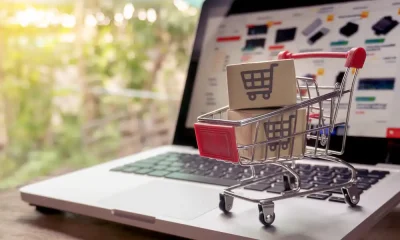Legal
What Your Business Should Know About Product Liability Law

Product liability laws are in place to protect consumers when they’re injured by defective or harmful products. Your business could be sued if its consequences end up hurting someone. In this business blog, we share our interpretation of five critical aspects of product liability law.
Five Key Aspects of Product Liability Law
Read on to learn what you need to know so your business can protect itself and its customers.
1. Laws Are in Place to Protect Consumers
Your business legal expert should protect your business from potential litigation due to injury caused by defective or dangerous products. However, as a business owner of a company that sells products, you can not plead ignorance. Therefore, you must know your business is doing all possible to prevent customer harm.
If your business operates outside of the USA, you must know the laws of the country where your products are sold and the local State laws.
In the United States, no overarching federal law governs product liability. Instead, each state has its own rules and standards. For example:
- Canada has provincial and federal regulations for product liability
- California product liability law
- New York has a statute of limitations of 3 years starting from the date of injury
2. Each Product Liability Lawsuit Is Unique
If you have a product on the market that is defective or harmful, you could be held liable for damages by people who are injured by your product.
While each product liability lawsuit is unique and depends on the specific circumstances concerning the defective or dangerous product and the injuries, people suffer. As a result, all product liability lawsuits share common traits, including:
- The defective product causes an injury
- The injury causes losses
- The business owner, manufacturer, designer, or retailer must ensure consumers purchase safe products.
3. The Plaintiff Must Prove That a Defective Product Caused His or Her Injuries
When someone is injured by a defective product, they can bring a lawsuit against you, the manufacturer, designer, or retailer of the faulty product.
Defects fall into three main categories, design, manufacturing, and marketing.
Design Defects
A design defect is when a product design is what’s faulty. Therefore, design defects typically refer to whole production lines of products rather than a single product. Being involved in a vehicle collision when the airbag doesn’t inflate is an excellent example of a design defect.
Manufacturing Defects
Manufacturing defects refer to defects that occur while manufacturing a single product, not the entire assembly line. For instance, screws or parts could be fitted incorrectly. The vast majority of product liability lawsuits arise from manufacturing defects.
Marketing Defects
Defects that cause injuries can also arise from failing to give customers visible instructions on using a product and warnings about using a product. That means a consumer could buy a product and use it in a way that isn’t intended and end up injured. For instance, if a steam valve on an iron is oddly positioned and there are no accompanying instructions, a person could be damaged due to a marketing defect.
4. You Should Take Immediate Action if a Consumer Is Injured by a Defective Product
As mentioned above, you could be sued if someone is injured by a defective or dangerous product. Therefore, you should immediately act when you find out about it. That means contacting an attorney with experience working with product liability cases.
Your lawyer will be able to give you invaluable advice regarding the product liability lawsuit and help you achieve the best possible outcome.
A personal injury lawyer could advise you to make a public statement in which you acknowledge the problem of the product, contact all retailers, wholesalers, and distributors, and develop a plan to fix the defect. You’ll often need to recall defective products to ensure no further injuries occur.
Sometimes, government agencies can mandate product recalls. You may also need to reimburse affected customers. Besides giving you advice on how to handle a product liability lawsuit, a reputable lawyer can represent you in court to help lessen the impact of the financial cost of the plaintiff’s compensation and the price that a defective product can have on your company’s reputation.
5. You Can Take Steps to Prevent Injuries Occurring from Defective Products
You can prevent being involved in a product liability lawsuit in the first place by taking appropriate steps to avoid defective or dangerous products from entering the marketplace and causing injuries to customers. If you don’t take the proper steps, you could face financial and reputational ruin when an injury happens.
Testing
Always perform comprehensive product testing on products you manufacture and obtain from suppliers.
Warnings
Give adequate warnings on products that require warnings.
Insurance
Get product liability insurance to lessen the financial impact should a product cause an injury.
Final Words
Ideally, as a business owner, you will personally seek to understand how your business can navigate the process of ensuring product safety. Also, understand the steps to protect the business against liability claims. Mistakes happen, but nothing stops you from being well-prepared with legal representation and insurance.
Please note this article is not legal advice – it is an interpretation only, as is the case with all our business blog articles – OE&E.









